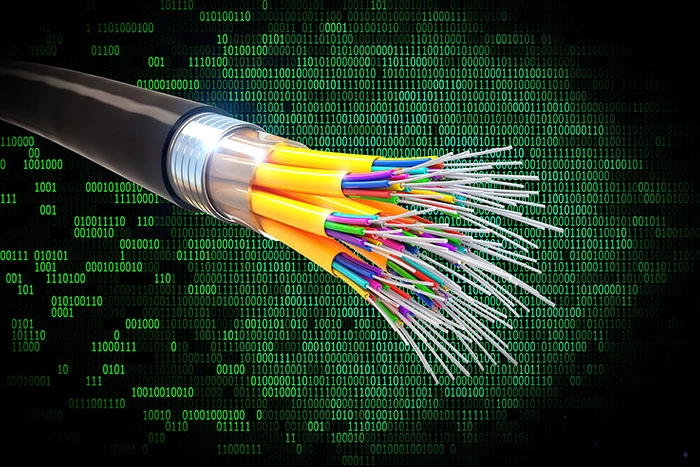Demystifying the magic of fiber optic cables
 Update Time:2026-01-15
Update Time:2026-01-15
 Traffic:
Traffic:
Fiber - optic cables have revolutionized the world of communication and various other industries. This article will explore the fascinating aspects of fiber - optic cables, including their working principles, unique features, and wide - ranging applications. We will uncover how these cables have become an essential part of modern society, enabling high - speed data transfer and more.

Fiber - optic cables, characteristics, applications
- Introduction
- Working Principle of Fiber - Optic Cables
- Unique Features of Fiber - Optic Cables
- High - Speed Data Transmission
- Immunity to Electromagnetic Interference
- Long - Distance Transmission Capability
- Applications of Fiber - Optic Cables
- Telecommunications
- Internet and Data Centers
- Medical Field
- Industrial and Monitoring Systems
- Future Prospects of Fiber - Optic Cables
- Conclusion
Fiber - optic cables have emerged as a game - changer in the world of technology. They have significantly transformed the way we communicate and transfer data. In this article, we will embark on a journey to unveil the magic behind these cables.
Introduction
In today's digital age, the demand for fast and reliable data transfer is constantly increasing. Fiber - optic cables have stepped up to meet this demand. Unlike traditional copper cables, fiber - optic cables use light signals to transmit data, which has opened up new possibilities in various fields.
Working Principle of Fiber - Optic Cables
The core of a fiber - optic cable is made of glass or plastic, which is capable of guiding light signals. When data needs to be transmitted, an electrical signal is converted into a light signal using a laser or a light - emitting diode (LED). This light signal then travels through the core of the cable by means of total internal reflection. At the receiving end, the light signal is converted back into an electrical signal for further processing. This unique working principle is what makes fiber - optic cables so efficient in data transmission.
Unique Features of Fiber - Optic Cables
High - Speed Data Transmission
One of the most remarkable features of fiber - optic cables is their ability to transmit data at extremely high speeds. They can support data rates of up to several gigabits per second or even more. This high - speed data transfer is crucial for applications such as high - definition video streaming, cloud computing, and large - scale data transfer in data centers.
Immunity to Electromagnetic Interference
Fiber - optic cables are not affected by electromagnetic interference (EMI). Since they use light signals instead of electrical signals, they are not susceptible to interference from nearby electrical devices, power lines, or radio waves. This makes them highly reliable in environments where EMI is a concern, such as industrial settings or near electronic equipment.
Long - Distance Transmission Capability
These cables can transmit signals over long distances with minimal signal loss. They can cover distances of several kilometers without the need for frequent signal amplification. This long - distance transmission capability makes them ideal for long - haul telecommunications, connecting different cities and even countries.
Applications of Fiber - Optic Cables
Telecommunications
In the telecommunications industry, fiber - optic cables have become the backbone of modern communication networks. They are used for long - distance telephone calls, mobile network backhaul, and cable television distribution. The high - speed and reliable data transfer provided by fiber - optic cables ensure clear voice calls and high - quality video streaming for consumers.
Internet and Data Centers
Fiber - optic cables play a vital role in the Internet infrastructure and data centers. They enable high - speed connectivity between servers, routers, and other network devices. In data centers, large amounts of data need to be transferred quickly and accurately, and fiber - optic cables meet this requirement perfectly. They also support the growing demand for high - speed Internet access in homes and businesses.
Medical Field
In the medical field, fiber - optic cables are used in various applications. For example, they are used in endoscopes, which allow doctors to see inside the human body without invasive surgery. The light - guiding property of fiber - optic cables enables clear visualization of internal organs, facilitating accurate diagnosis and treatment. They are also used in laser surgery, where the light signals can be precisely controlled to perform delicate operations.
Industrial and Monitoring Systems
In industrial settings, fiber - optic cables are used for monitoring and control systems. They can transmit data from sensors located in harsh environments, such as high - temperature or high - voltage areas. Their immunity to EMI makes them suitable for use in industrial plants, where there are many electrical devices and potential sources of interference.
Future Prospects of Fiber - Optic Cables
As technology continues to evolve, the future of fiber - optic cables looks promising. With the development of 5G technology and the Internet of Things (IoT), the demand for high - speed and reliable data transfer will only increase. Fiber - optic cables will continue to be at the forefront of meeting these demands, and new applications and technologies based on them are likely to emerge.
Conclusion
Fiber - optic cables have truly changed the way we live and work. Their unique working principles, outstanding features, and wide - ranging applications have made them an indispensable part of modern society. As we look to the future, fiber - optic cables will undoubtedly play an even more important role in shaping the technological landscape.
 English
English  Spanish
Spanish  Portuguese
Portuguese  Arabic
Arabic  Russian
Russian  简体中文
简体中文 


 Location:
Location: 

